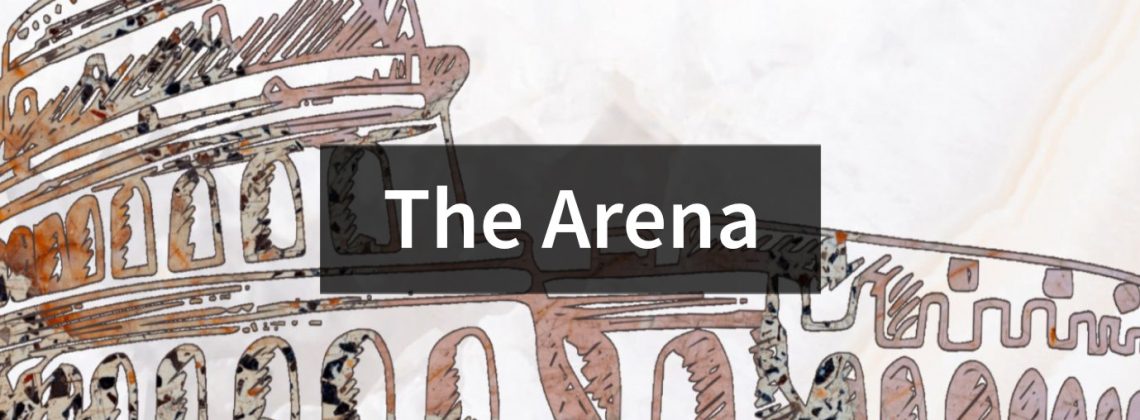

The Unicorns are here!!! I hope that you had an amazing July 4th of celebrating with all kinds of wonderful activities—and hopefully none of those festive diversions set your house or your neighbor’s domicile on fire.
And now, if you’re ready for eating some leftover strawberry-blueberry shortcake with your morning coffee, I hereby present you this week’s Unicorns! I should note that this is the last roundup I’ll do for about a month. My book Christians Reading Pagans is due to Zondervan on 08/01, so I am cutting back on a lot of things this month (well, to be honest, mainly just one thing–sleep!) to make it happen.
***
Daniel Hummel wrote about the Scofield Reference Bible. Just in case you need convincing to go read in full, here’s a teaser from his introduction:
It is a useful fact for trivia night that Oxford University Press, one of the world’s most prestigious academic publishers, has a bestselling book of all time that it doesn’t often celebrate. That bestseller is the Scofield Reference Bible, edited by C. I. Scofield, first published in 1909, updated in 1917, and revised in 1967. In its first few decades, the SRB sold more than two million copies and, by one estimate, has sold more than ten million copies in its lifetime. It still sells in various formats in dozens of languages.
***
Emily Belz in Christianity Today on this crucial topic, as we see the rise in college closures: who is going to take care of transcripts and other documents and records that alumni may need to access decades later? Belz profiles Houghton University as a case study: Houghton kindly took over Alliance University (aka Nayak College)’s records after its closure last year, and it has turned out to be a much more labor-intensive project than anyone had expected.
***
Luther Ray Abel’s piece on “Ghost Ships of the Great Lakes” (h/t Jon Lauck) is well worth reading.
***
Over the past year, Dixie Dillon Lane has shared her experience with unplugging on the weekends. I was reminded of her advice while reading this beautiful essay from Elizabeth Oldfield in Plough, who encourages everyone to take a tech sabbath, thereby letting go of our modern (and so respectable) work addiction. A taste:
Tech sabbaths and digital detoxes, even half-arsed ones like mine, are a modern iteration of one of the oldest ideas in civilization. In the second chapter of the Hebrew Bible, itself one of the oldest documents we have, God undertakes six days of creative work, and rests on the seventh. He blesses the day and declares it “holy.”
Theologian Walter Brueggemann called the practice of sabbath an act of resistance. The word conjures French fighters, stylishly sabotaging Nazi infrastructure while smoking Gauloises. Imagining myself in a beret with red lipstick really helps when I attempt to turn off my phone for a day. It’s certainly a more attractive image than the grey, dull associations most of us carry. Sabbath sounds to us like the shop closing early just when we’ve run out of milk. It sounds like restriction. Which it is. But it is also (and this will be a theme) through restriction, liberation.
For most of the week, my value is in what I produce and what I consume. If I’m not careful my main goal in a day becomes being impressive and competent, subtly signaling my status with the things I buy, say, and post.
Sabbath is the opposite. It is a line in the sand. Today I am just a person, and a person is beyond price. Sabbath is about valuing, fighting for, and fiercely guarding rest.
***
Speaking of tech sabbaths and what to do during them, if you need a beautiful and encouraging graduation gift or birthday present (or even want to get started on Christmas presents a few months early): we congratulate Current’s Contributing Editor Tim Larsen on the publication of this gorgeous annotated edition of George MacDonald’s Diary of an Old Soul.
***
It’s still summer, but in some Southern states (like Georgia, where we had lived until just a year ago!), school starts back August 1st. So it’s an appropriate time to read this fascinating piece from Doug Stowe about children’s development and the origins of kindergarten.
***
Last but not least, spend a few minutes with this gorgeous essay, “The Mind of the Maker and the Art of Liturgy: A Poet’s Eye View” from poet Marly Youmans–you will not regret it.